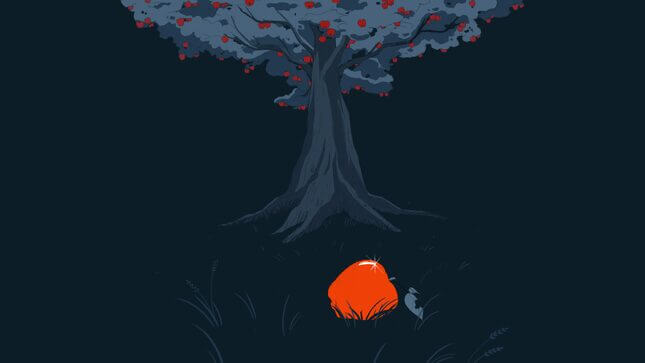
Image: Chelsea Beck/GO Media
Pity the protagonists of old-fashioned novels—just about everything seems to happen to them. They have an uncanny knack for fortune and tragedy alike, for auspicious birthrights and absent parents and the dubious ministrations of strangers. Yet “the only standard of real importance,” writes Jane Smiley in Thirteen Ways of Looking at the Novel, is agency—the choices made in the face of circumstance. “Not only is the novel inherently political,” Smiley argues, “it is also inherently liberal—that is, it embraces the rights and obligations of individualism.” What has happened to a character matters less than what she makes of that happening, what has been done to her—however generous, however cruel—matters less than what she chooses to do.
Esmé Weijun Wang’s novel The Border of Paradise begins with David Nowak, the troubled son of a wealthy family. What has happened to him is gently called “neuroses,” and this condition prevents him from taking his place as the scion of the family business. “The myth of the Nowak Piano Company—a Polish immigrant arriving in America with nothing but a Bible, a tuning fork, and a knife!” David thinks. “The notion of an affordable, but still beautiful piano! The immigrant’s ingenuity and his consequent success as a piano maker in an inhospitable land!—this tale was as essential to our family as the story of the birth of Christ.”
Like the story of the birth of Christ, The Border of Paradise is full of sin and redemption, of parable and fable, of cleansing fire and corrupting temptation. Eighteen years old, ostracized, and grieving his father’s death, David sells the Nowak Piano Company for a fortune and follows an acquaintance to Taiwan. On the other side of the world, he falls for a madame’s forthright daughter, Jia-Hui, and she—for her own reasons—asks to be taken to America, to marry him.
“Is this the moment when my fate could have gone in a different direction?” Jia-Hui asks, in a parenthetical. “Or had the doors already closed behind me?” These slim and bent parentheses contain the novel’s urgent, unanswerable thesis. What is inherited? asks Wang. What is inescapable? For her characters, the abstraction of fate wears everyday guises: familial expectation, emigration, a religious calling, a mental disease. Of his madness, David recalls: “The doctors said, Try this, try that, try this, never, You’re a lunatic for life, so that every time it came up it was a surprise.”
The driving force behind the old archetype of the immigration narrative is the belief that one can change one’s fate by changing one’s place, that America—like the novel—is a country where the doors never close, before or behind
Try, try again: the one and only instruction for the American dream. The driving force behind the old archetype of the immigration narrative is the belief that one can change one’s fate by changing one’s place, that America—like the novel—is a country where the doors never close, before or behind. The future lies flung open. Every direction is a possibility.
But fate, in The Border of Paradise, can’t always be outrun. The book opens with David’s suicide, and its gruesome revelation is just a hint of the horrors to come for what remains of the Nowak clan: Jia-Hui, whose husband renamed her Daisy—the same name as the woman loved by that great fictional avatar of the fictional American dream—and their children, William and Gillian. The trio lives where David left them, in an isolated house in the California wilderness, miles from the nearest town and thousands of miles from either strand of their bloodline. But blood is all they have: the children don’t go to school and have no relationships outside their family. William cleaves to this life, his mother’s trusting acolyte, but Gillian grows claustrophobic. Their fate—raised among ancient forests at the far edge of the continent—feels like freedom to the son. To the daughter: imprisonment.
When Gillian adopts a stray dog found wandering in the woods, she gives the creature a strangely human name. “Sarah is on a long rope tied around a post,” the girl thinks. “Sarah is a hopeless creature.” But Gillian knows the torment of a life spent staked and chained, and she lets the dog go. Gillian does what her mother, wracked by grief and fear, cannot. “[G]olden sons remain their mothers’ flesh long after they’ve grown,” Jia-Hui says, of William’s closeness to her. “This is truest for immigrants, who have no homes either in country or by blood; immigrants only have the homes that they create.” Jia-Hui shares the language, food, and traditions of her homeland with the American-born children, but she also passes down her terror of the strange country around them, its judgments and its threats. If the Nowak legacy was too weighty for David to bear, William and Gillian’s inheritance is even heavier: they risk being crushed beneath it.
“I’ve been returning to The Confessions more than to the Bible these days,” David says, before his death, “but it’s become difficult to understand what I mean to accomplish through any style of confession.” Each section of The Border of Paradise but the last is narrated in the first person; every character takes a turn in the confession booth. David’s madness; Jia-Hui’s fanaticism; William’s brutal confusion; Gillian’s desperation—we see them now from the inside, now from the out. We leave a character’s mind full of sympathy and find a stranger upon returning, her actions grown terrifying and strange. One character’s survival becomes another’s nightmare; one character’s surety is another’s hallucination.
-

-

-

-

-

-

-

-

-

-

-

-

-

-

-

-

-

-

-

-

-

-

-

-

-

-

-

-

-

-

-

-

-

-

-

-

-

-

-

-








































